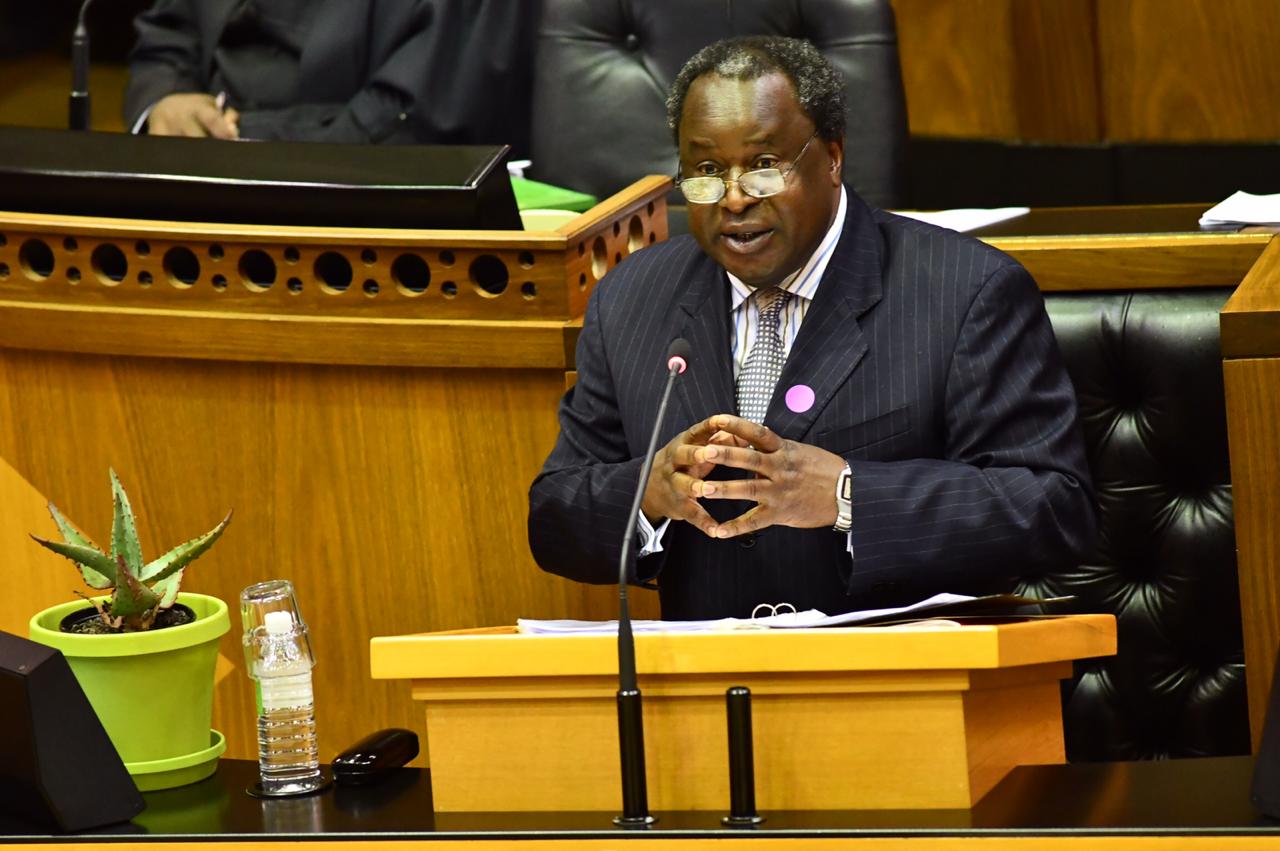Tito Mboweni contends that appointments to statutory or public institutions do not always have to follow a public process.

Finance Minister Tito Mboweni. Picture: GCIS
Open Secrets and the Unpaid Benefits Campaign is set to square off against Finance Minister Tito Mboweni in the High Court in Pretoria today, over how the Financial Services Conduct Authority’s (FSCA) head honchos are appointed.
The financial sector watchdog was launched in April 2018 – and last September, National Treasury finally began the process of appointing a commissioner and four deputies to head it.
But this has been met with push back from the nonprofit organisation, which says that process was shrouded in secrecy.
Open Secrets was unsuccessful in an initial bid to have the process halted temporarily and the Reserve Bank’s Unathi Kamlana has since been named as the new commissioner.
But regardless, they are now pressing ahead with a bid to have the regulations governing the appointment process declared unlawful.
As it stands, these regulations only provide for public participation once a panel has shortlisted, interviewed and recommended to the minister its preferred candidates for the top spots.
But Open Secrets – which is represented by the Centre for Applied Legal Studies (Cals) – says the entire process should be open to the public and, importantly, the media.
In their heads of argument, their lawyers, Kameel Premhid and Aakifah Louw, quoted English philosopher Jeremy Bentham: “In the darkness of secrecy, sinister interest and evil in every shape, have full swing”.
They said by excluding public participation and oversight, there was no accountability.
“The process began with 90 applicants from which five candidates were shortlisted,” they said.
“From the five candidates shortlisted, the panel invited the public to comment on two candidates that it intended to recommend to the minister. No information concerning who either the original 90 applicants or the shortlisted five applicants were, made its way into the public domain.
“The criteria used by the panel to reach its decision on the final two candidates is also unknown to the public. It is clear that the entire process of selecting a head and deputy head of an organ of state was conducted behind a veil of secrecy.”
The lawyers argued that “unwarranted secrecy in government undermines the public faith in the political system” and that “secrecy perverts the system and allows a public forum to become a tool for keeping wrongdoing secret”.
They added: “Transparency is, therefore, an important yardstick against which constitutional obligations placed on a party giving effect to constitutional rights must be measured.”
Mboweni, for his part, contends that appointments to statutory or public institutions do not always have to follow a public process and that while the interviews for the top spots at the FSCA are indeed “private”, this does not render the process secret or unlawful.
“The mainstay of [Open Secrets’] case is that the regulations authorise a ‘secret’ appointment and recruitment process. This could not be further from the truth,” Mboweni’s counsel, Ngwako Maenetje and Realeboga Tshetlo, argued in their heads of argument.
They maintained there was no “general duty” under either the constitution or the FSCA Act that the appointment process should be open to the public from beginning to end.
bernadettew@citizen.co.za
Download our app